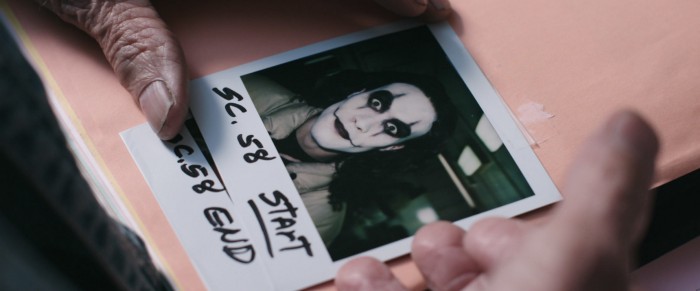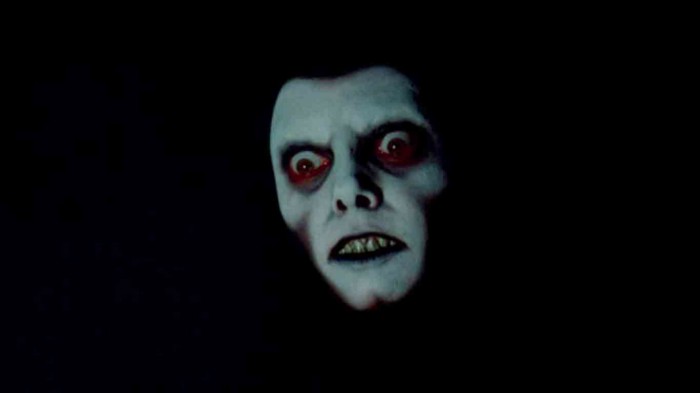‘Avatar: The Last Airbender’ is now on Netflix
The original series is now on Netflix, you should definitely give it a watch. And if you’ve already seen it, watch it again.
Trouble on set is an unfortunate fact of the filmmaking process; fights can break out, equipment can malfunction, important cast and crew members can quit, and so on. What isn’t particularly “normal” in the filmmaking process is a string of horrific events including random deaths of cast and crew members and their families, strange sicknesses, or other freak accidents surrounding or within the production that can’t be reasonably described. Shudder’s newest mini docu-series, Cursed Films describes some of the most “cursed” production cycles within the horror industry, detailing some of the most infamously violent, disturbing, and tragic events during the production and release cycles of western horror’s most iconic movies.
Running close to two-and-a-half-hours in total length, this first season of Cursed Films covers the troubled production cycles of five iconic horror films: The Exorcist, The Omen, Poltergeist (and it’s following sequels), The Crow, and Twilight Zone: The Movie, all within separate near half-hour chunks. Each one of these films either had some sort of tragedy involved in their production, freak incidents happening around production, or a combination of the two. What Cursed Films attempts to do, is cover these tragic events in detail, while also covering the supernatural conspiracy theories the public and tabloid papers made about the films, ultimately finding the truth through the people who worked on these sets, be them actors, producers, or directors.

The true value Cursed Films offers is laying to rest the wild conspiracies that ran rampant throughout the productions of these featured films, finding the rational explanations as to why these tragic events happened. Cursed Films sometimes entertains the black magic and more conspiratorial thoughts around certain productions — primarily within episode two, which is about 1976’s The Omen — yet mostly stays within the realm of rationality. These separate, interesting perspectives are always intriguing to learn about, yet the key issue at the heart of this series is that it rarely goes into any extensive detail. Anyone who knows their stuff about movies, especially on the production side of things already know most of, if not all of these horrific stories that plagued the films showcased in this series, and I guess that most of those people would already know more details about said events than this series gets into. Although being surface level in its assessments, Cursed Films is still an entertaining watch, especially if you’re unfamiliar with these events.
Outside of surface-level information being at the forefront of Cursed Films, the series itself doesn’t stick to its branding as the show goes on. While the speculation of curses runs throughout the first four episodes, the final episode about Twilight Zone: The Movie steps away from talking about curses, only to cover the on-set tragedy, itself; the information within this final episode is still interesting and crucial knowledge to those studying film and maybe want to get into filmmaking, yet it has nothing to do with any previous episode of the series, dulling the momentum of those previous episodes. This general lack of focus, unfortunately, doesn’t just run within Cursed Films’ final episode, rather, it pops up from time to time in other segments earlier on, failing to craft a true sense of a focal point for the show, making it feel far more scattered than it should have at the end of the day.
It’s also a tad shame that there weren’t more diverse voices to speak on the events shown within Cursed Films. Understandably, many of the people who speak on the mishaps surrounding these films are those who were involved with the films (primarily white men), which is understandable due to the film industry’s lack of true diversity just a few decades ago. Cursed Films does pull other outside voices to speak on these matters, including other industry people including production studio heads, journalists, and critics, but besides screenwriter and critic, April Wolfe, being featured to speak briefly in a few episodes, any other voices that come from women or people of color are only within the very first episode. I feel that this lack of diversity marks a need within even the smaller circuits of the film industry to bring on a wider range of voices for their films, both on and off camera.

Even with all of these issues accounted for, Cursed Films still makes for an entertaining watch. Of course, there are some graphic descriptions and even some imagery shown within the series that’s upsetting (primarily within the final episode), so be forewarned before you give it a gander. If you’re someone who’s fascinated with film and hasn’t heard about some of the stranger and tragic sides of the industry’s more shocking movies, Cursed Films is worth a watch. If you’re subscribed to Shudder, you can stream it now, or can purchase the Blu Ray.
-Ethan Parker
Related lists created by the same author
The original series is now on Netflix, you should definitely give it a watch. And if you’ve already seen it, watch it again.